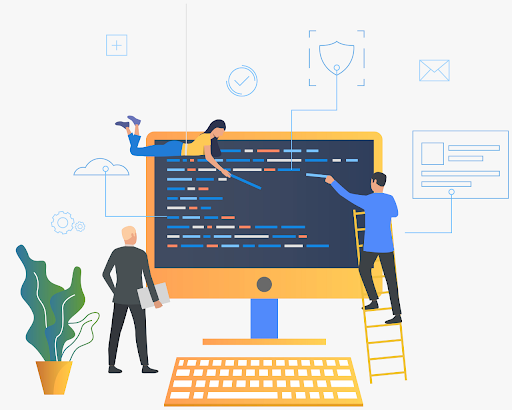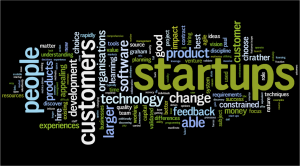Although the focus in 2020 has largely been on the pandemic and taking precautions to reduce the spread of the virus, businesses have had to stay vested in their cybersecurity, as well. If anything, the health of your business is in even greater jeopardy if you get sidetracked by other issues and allow your cybersecurity strategy to stagnate.
Now more than ever, with hackers becoming more skilled and adaptable than ever, entrepreneurs and startups alike need to step up their IT security strategies to prevent long-term reputation damage, data loss, and security breaches of any kind. Not only do you have to invest in cybersecurity but you also need to secure the physical assets of your business. The best way to do that is to look at state of the art Business alarm systems which can secure your valuable equipment and materials, and important company information.
Investing in preventative measures for your security will help protect your business and your standing in your industry for the long haul. Here, we’ll list several of the most effective principles of IT security your business needs, and you can use them to refresh your strategy and greet the upcoming months with your data and your processes protected and secured.
Educate your employees
Startups and aspiring entrepreneurs are always on the lookout for the most cost-effective solutions out there. However, you should never be stingy with your cybersecurity needs, since investing in the right prevention will help you reduce the risk of major financial loss in the future. Should you ever experience a security breach, you will understand what it means to lose clients and customers, and to damage your reputation beyond repair.
So, safeguarding your company’s financial stability by investing in prevention is the best way to move forward, and it all begins with your employees. Create a security training module and make it part of your onboarding process. Everyone who joins your organization should have that basic working knowledge of proper password selection and management, safe communication practices, and know your security policies inside and out.
Secure your business network
Unauthorized access to your business network is one of the greatest security risks your business cannot afford to have. With that in mind, you need a comprehensive network security solution that encompasses everything from hardware and software firewalls to internet access management. Preventing your employees from accessing unsafe websites and filtering unwanted traffic to your own network helps prevent a wide array of cyberattacks.
Monitoring paired with an airtight business network provides a safe environment for your employees to browse, collaborate online, and to protect your data. Even more than that, you can rest assured that no phishing scams or ransomware can find their way into your systems once you protect your network properly.
Prepare just in case of an incident
Prevention is indeed the best possible way to treat your IT security plan and ensure that all the latest technologies and solutions are used in your organization. However, a data breach or a leak might happen despite your best efforts, so preparing for that worst case scenario should be part of your IT security strategy.
Even if you think that you, as a small startup or a one-person show aren’t the target for any versed hacker, you should think twice. Hackers nowadays often target small businesses and young startups precisely because they represent less of an adversary. Just in case an incident happens under your watch, you need a thorough response plan to recover as much data as you can, to restore your operations, notify customers, and minimize damage. Of course, you should also be able to respond to the attack directly and make sure your IT experts are ready to tackle any security issue.
Multi-factor authentication
On one hand, your data protection approach does start with how your business handles that data, and if you use end-to-end encryption, safe collaboration tools, and use the latest software to keep your devices protected. However, understanding how vital of a role your employees play in the safekeeping of your data means that you also need to limit who and when can handle your most sensitive customer information and business data.
It should be clear in your organization who can handle this information and for what purposes, as listed in your security policies that you should update regularly. Introducing two-factor authentication adds another layer of security to handling this information, and you can prevent malicious attacks from within. As unlikely as these attacks sound from your employees, you still need to err on the side of caution. This will help prevent data leaks and unauthorized access to unique user accounts within your business.
Keep all devices protected
Even though you likely use a secure cloud account to store your business data, you should also remember that whenever your employees interact, they might inadvertently exchange certain information that shouldn’t be public knowledge. Whether they’re using their company laptops or phones, or they’re relying on their private accounts and devices, you should still cove all of your bases.
To do that, make sure that your employees only use company-assigned devices to conduct business conversations. Add to that, let your IT team regularly update and audit security on each of those devices, to make sure all security software is up to date and properly installed. Finally, you can create a dedicated BYOD policy for your employees, and make sure that everyone knows what they are supposed to do should they use their private devices during office hours and for logging into business accounts.
With well-educated employees who know how to handle sensitive information and practice safe online collaboration, and smart security policies in place, your IT team as well as your complementary security solutions will help you preserve your security. Of course, there will always be new cybersecurity ideas on the horizon, and you should strive to improve your strategy as new trends arise, keeping all of your most important business information secure and your organization protected.

Jolene Rutherford is a marketing specialist – turned blogger. Interested in digital marketing and new technology trends. Love sharing content that can help and inform people.




